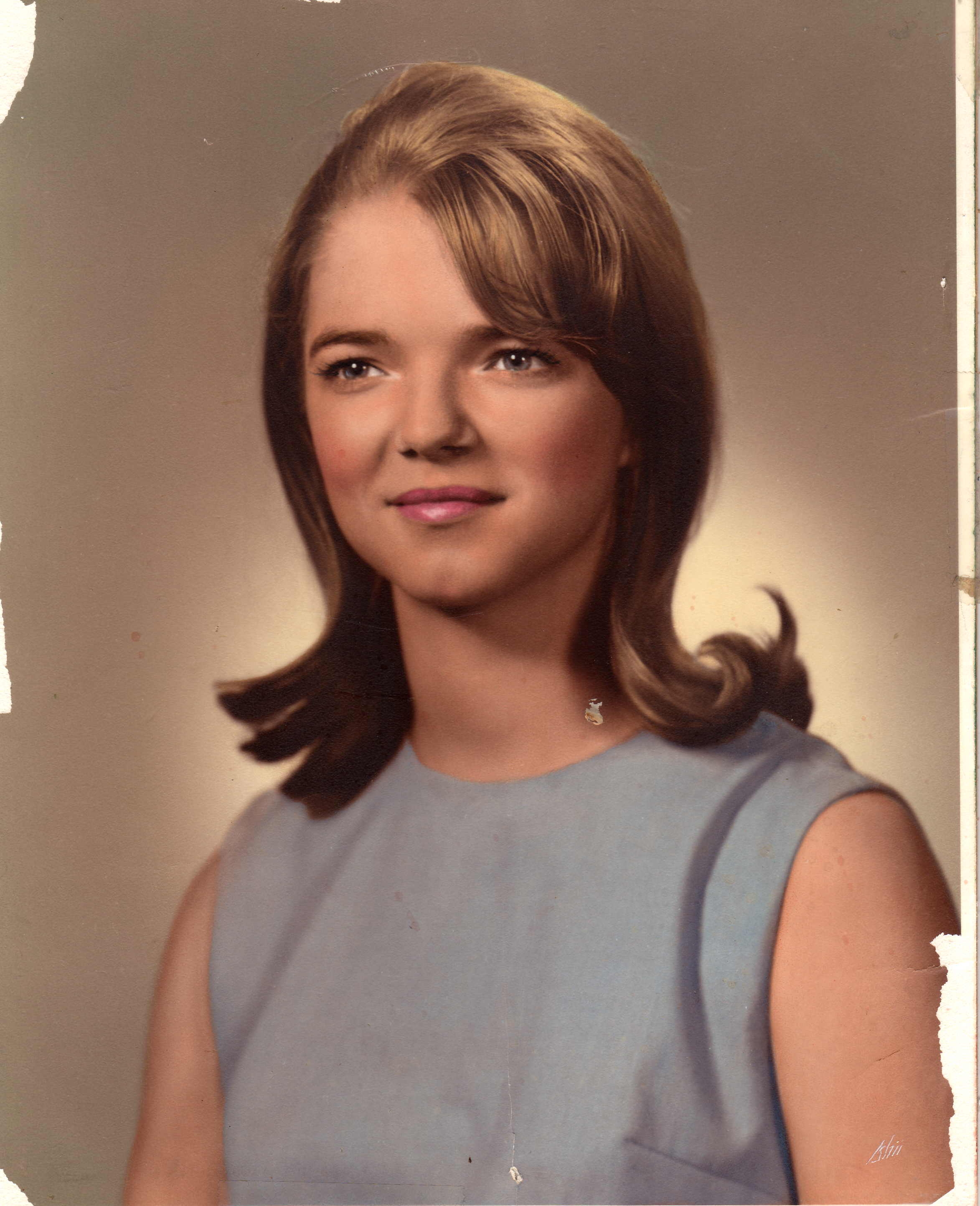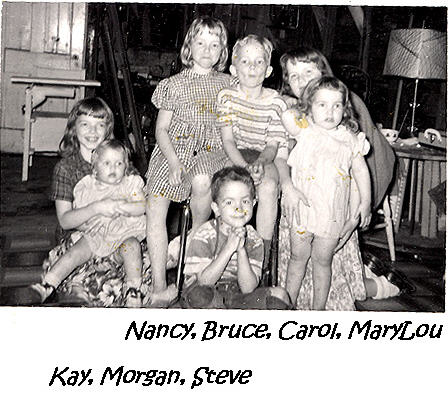Esther Kay Oswalt (nee Kidder)
Omaha , Nebraska
March 2006
Elizabeth Anne Oswalt
Palo Alto College
History 1302 - Spring 2006
INTRODUCTION
Esther Kay Oswalt was born
January 30th 1949 in Omaha,
TRANSCRIPTION
Did you have to walk in sub zero temps in only a dress to school in the
1950’s?
Yes
Why?
Girls were not allowed to wear pants, but our mother would let us wear
pants under our dresses that we had to take off when we got to school.
How come girls were not allowed to wear pants in public?
It wasn’t considered ladylike; woman were not allowed to wear slacks when
I was a little girl, ladies wore hats and white gloves and girdles
in public, never appeared in a pair of slacks or shorts unless they were
bermuda shorts.
As a child do your remember a chore that your mom spent a considerable
amount of time doing that today has been shortened or eliminated?
Laundry, we had a wringer washer machine we were very, very poor. Before the wringer washer, she would actually
wash clothes by hand on a scrub board in a tub of water and hang them up on the
line…she eventually got an automatic clothes washer. Laundry took forever, I
can understand why back in the old days laundry took an entire day to do.
I remember reading about little girls that took time off from school to help
their mom do the laundry on laundry day.
Monday was laundry day.
Did you do anything like that?
No. I would help her but I didn’t have to. I thought the wringer washer
was cool. My mom had this safety feature where if you fed too large a clump of
clothing or your hand through the wringer part, the safety catch would kick in
and it would automatically release...and that saved her hand one time.
So doing laundry could be dangerous for a lot of women.
If they didn’t have that safety feature, I don’t remember if washers did
or did not, but yeah I could see where they would have gotten harmed. Her hand
would get bright red from the hot, hot water she washed clothes in…she had a
routine; she used the same water for all the loads. First for the whites they
got the fresh hot water then came the colored clothing, and after the blue
jeans… she just used the same hot water over and over again.
What chore was shortened or eliminated for you?
Diapers, I had a baby just before pampers were invented …that chore took
forever and was disgusting. My mom was way cool. She would go to the flea
markets and places like that and buy dresses with really pretty fabric. She cut
the skirt off and made diapers out of these flowery and checks …when they were
wet we would wash them and when they were soiled, we pitched them.
That was smart.
She was really cool. She would put a pair of plastic underpants on them
there you go. When they were old enough to toddle around, it was really cute
watching that cute little rear end toddle away from you with… I don’t know …a
big daisy staring at you.
As a little girl what did you want to be when you grew up?
A mommie, I never had any aspirations to be president; all I ever wanted
to be was a wife and mother. I wanted to
make bunny costumes for my children to wear in the P.T.A pageant. That was all I wanted to be as a child; a
wife and a mother.
Was your choice based off of who you are or because of messages you received
from society?
I think it was both; part of it was being firstborn in the family. My
sister came along when I was eleven and a half months old and at that point in
time I stopped being the baby and became the big sister. My mother said when I
was a year old I would help her by putting washcloths away and bringing her
diapers, bringing the bottle for the baby, so mothering was what I grew up
knowing and pride was taken by parents when… doing cutie adult things, just
like it is now. What I would receive my
high marks for was how well children responded to me so that was where I got my
kudos. Society expected woman to be
wives and mothers, so I think it was a combination what society expected, the
positive feedback I got from my parents and other adults for being such a
perfect little mother and from my place in family as firstborn.
As the oldest child what was expected in the way of chores for you as a
girl?
Dishes, sweep the floor, being oldest didn’t give me different chores
than it did anybody else at times, being oldest was a big pain in my
backside. When my youngest brothers and
sisters would be brats and I would get blamed for not setting a good example
for them…even when I was not in the house…but that was my family, not society.
What was expected from your brothers, did your parents have different
expectations for them?
I don’t really know, my brothers were three
years behind me… I have to think about that…yeah they did, now that I think
about it, they all had to make beds, do dishes, they all had to the same things
so they weren’t give preferential treatment as far as chores went. As far as preferential treatment went, they
were given more personal freedom.
Like what?
… Girls were given less freedom than boys, back when I was a child… woman
were fragile delicate little creatures and needed to be protected and guarded
against what ever might come their way…
Were you ever sent out to work for another family? What were your
responsibilities?
When I was in the fifth grade I went to work for a school teacher who had
gone blind. I was her housekeeper: a maid, I swept and mopped and cleaned…I
think I got a dollar a week, and whatever it was I got paid I gave to my mom
and dad.
Okay so at a really young age you had to help out then?
I was eleven.
What were you plans for after school?
Depends on the age I was…
Just to say 1st grade and then 12th grade.
… In grade school I was going to turn 16 quit (school) school, get
married and have babies. That’s what I
was going to do as my plans when I was in junior high. Then by the time I got to high school, I was
pregnant, so my plans were to go to Greenwood where they had an insane asylum
and go to work there where they had housing for their employees was available
and I was going to the church to arrange childcare for my baby …if I wouldn’t
have been pregnant I was going to join the Air Force and be a speech pathologist
but I got pregnant instead.
Why did you want to join the Air Force?
My mother was a W.A.C. and I
grew up hearing stories of the Army Air Corps form
both my parents. So I wanted to carry on the family tradition.
Do you think it would be easier for you now having a child right out of out
of high school…do you think there were more obstacles compared to now?
I have no idea I don’t know, I’m completely out of touch for what its
like for young unmarried woman today, in a way I think it would be easier back
then because there were so few of us, so it was rare and people were so shocked
and surprised at such an unusual occurrence happening that they felt sorry for
the poor abandoned thing, they were willing to help,… maybe it was better to be
unique and unusual and receive preferential treatment than to be scorned and
looked down.
What career choices were available to you when you were in high school?
Anything I wanted to be I could be, if that what was reality or not, I
don’t know.
What year did you graduate?
1967
Okay so that was around the time of the women’s movement?
Oh sure it was… I discovered too late that I wanted to go to college, by
that time I had thoroughly screwed up all my grades, played my way though high school
and my actions were to try to get a job with no training and no skills or join
the Air Force where they would give me training and skills and instead I got
pregnant… but that was my personal goofing off at school and not what I was
limited to be able to do, or to have.
When did you go to college?
1979 and 80 After I had been married for ten years, had a divorce had
four children, not necessarily in that order, but I finally went back to
school; it took me a really long time to really want to.
Why did you not complete
college?
I
was a single parent with four children with a full time job and maintaining a
4.0 in school. Something had to give and it was my health. I had to
drop out for that reason.
Were there a lot of women who were going to college back then?
Not a lot, it was a transitional period between stay at home and women’s
lib.
What do you think would have made it harder for women to go to college than
men at the time?
The expectations, going to college is difficult…adjustment to make regardless
if it is the 50’s 60’s or 90’s so… all emotional support helps from family and
from the neighbors and the guy at the grocery store that’s all valuable, but if
what you get from your parents is “well you really don’t need college in order
to change diapers and cook supper,” as opposed to “well here let me run you
down to the library to have the research you need for your paper” the attitude
is so completely different, being told constantly and repeatedly by everybody “
why are you doing that for, you don’t need a degree to be a mother and a wife”,
it was just off-putting you know, very difficult…swimming upstream against what
everyone’s expectations of you were.
Do you think that there is more incentive for women to go to college? Wait,
you kind have answered that question.
Do you think we made a difference, yes we did made a difference , do I
think its where I should be, no…there’s still far too many “ I’m not going to
let a women tell me what to do” so, supervisory positions for women are limited
and the glass ceiling
is alive and well. You’ve asked me if there are any personal frustrations
regarding woman’s lib… I felt that the era was very important. The equal rights amendment, I wish
it would have passed. It didn’t…if it passed it passed after I was at the
ballgame so to speak. E.R.A. as it was written was shelved…at the time, for
example, if a man in New York was offered a job in a another state and he took
it and moved out of state and his wife chose to remain behind…he could divorce
her for abandonment, but she could not divorce him. If she got the job out of
state and he chose to stay behind he could divorce her for abandonment she could
not divorce him...In the 70’s the E.R.A was made to address some of those
issues as well as equal pay for equal work.
One of my personal frustrations was for stupid stuff. Like for instance
the E.R.A is passed, does that mean… if everybody is equal, there will be one
bathroom for men and women what if you are in the bathroom and a man walks in
on you, what if you were a man and a woman walks in on you? Stupid, stupid
stuff, ill thought out, responses like that and I would hear that from woman as
much as I would hear it from the men, common people did not want the equal
rights amendment to pass , they were all mixed up as to what it would be all
about and I know it was because the male politicians did not do a thing to
educate the public, to make an awareness of what the E.R.A was really about.
I remember as a kid when they talked about the women’s rights movement it
was always very negative about the bra burnings and stuff.
Uh huh, (sic men thought) they were a bunch of dykes.
Obviously I was very right about a lot of negativity…
If they didn’t want to have babies, if they didn’t want to be tied down
to a family, they were dykes; anything that went against leaving the guys in
the power and the women in the home. The
women who were trying to be more than that were looked down as trouble makers,
homosexuals, whores, bitches, any ugly, filthy word any negative connotation
you could think of, that’s what they were called. I know I was part of that and I got called those
names too.
How were you a part of the woman’s movement and what incidence brought about
being called derogatory names?
I never marched in a parade or held a sign. My part of it was talking about equal rights
and trying to point out to my children; my boys as well as my girls that
people, not just woman, were stereotyped into a certain role, especially on
television or in the movies, and I am even carrying that on with my
grandchildren. For example I asked my
eight year old grandson “Can you think of any jobs a lady can do but a
gentleman cannot do, except having babies?" and he thought about it and
said no. Then I asked can you think of a job that a gentleman can do that a
lady can’t do and he thought about it and he said something that would take
strength…I have done this with my boys and with my friends mostly getting
called bad names. I got called “bitch” a lot.
And that’s by guys because I won’t …bow down to the mighty penis…I just
never, I can’t say never, but once my mind woke up I could just never go back
to being in that box again. Guys just don’t like it when woman stand up for
themselves.
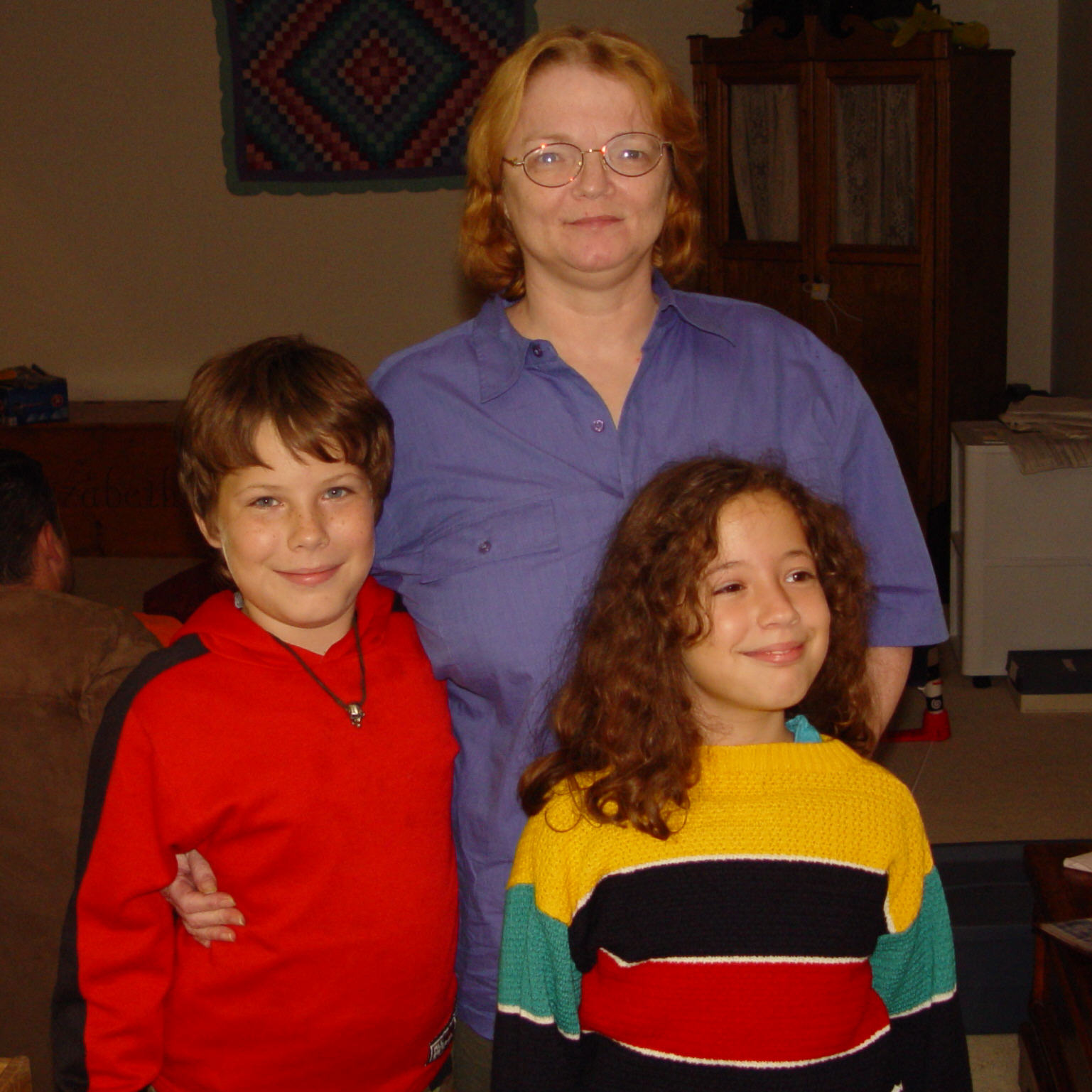
When you first started working, did you get a lot of negativity in the
workplace form men?
No, because the jobs I took were non-threatening, I was a waitress, and a
waitress did not threaten anybody.
Did you receive a lot of sexual harassment and if so was there anything you
could have done about it?
Yes, I did but it was mostly from customers and no there was not….I’ve
held a lot of low paying, blue collar jobs as a mother. One time my boss ran
his hand up my thigh up to my butt and back down my leg again and made a
comment on that I was skinny, but I quit, I quit that day and never went back,
I never told anybody the reason, I lied about my reason for leaving the job, I
did not tell them I left because of my boss, he scared me badly.
Good for you. Were you ever in a position as an adult that you needed a man
(i.e. co-sign loan) to do something for you just because you were a woman?
All the time, that was one of my big bones of contention. Even now if Blaine and I, say we take out a
loan like when we bought the house for example. He has to sign first because he
is the male... It got so old, always having to sign second. Doesn’t that annoy
you?
Yeah it does I just figured it was because he was the one making more money.
Even when I was making more money, he still had to sign first. He’s real
good about that too. He doesn’t care if I make more money he made, because we
both spend it so what difference does it make who makes the most…he’s way ahead
of his time.
Were you expected to stay home or did you husband want you to work in the
1970’s?
I was not expected to stay home, I wanted to stay home but my husband
wanted me to work and we fought about that a lot.
In the other interviews I noticed the interviewee's said it was the husband
who wanted to be the provider and let her stay home.
Oh no, he worked too, he just wanted me to work also, and I couldn’t see
why I should let someone I didn’t know bring up my children, when paying my
babysitter after all my costs were over and done with (including paying child
care) my baby sitter was making more money than I was. And I had to leave my
children with someone I didn’t know or a family member so I could go off and
earn less money than my babysitter. It just didn’t make sense to me.
Did your husband help out when your children were small or did he expect you
to do all the work?
I did it all, I was the mom, my job not his.
If he didn’t, did that bother you?
No that didn’t, I preferred him not to do it (laughs). It bothered me
when they were older but not when they were infants. He fed the babies, changed
some diapers and did some disciplining but other than that he never gave them a
bath for example or read them a story or sang them a song or took them for a
walk around the block, I did all that stuff…Curt and Charley spend a lot more
time with their children than Paul did with them.
What obstacles have you encountered in your life simply because you are a
woman?
One time after I was divorced, I wanted to rent a home in the
neighborhood where my family lived for fifteen or twenty years… my sister had
rented the house previously, she was married at the time. Because I was a
divorced woman with children, I was denied renting the house. Not because of my
credit, but because the guy said he did not want a lot of men coming in and out
of his house and wild parties because it would destroy the property.
Was that the only incident of someone being negative to you just because you
were divorced?
It’s the one that sticks most clearly in my mind.
Do you think your life has become easier or harder after the woman’s
movement?
I would think it has become easier because I am not expected to adhere to
a rigid role. Our roles are more fluid now in fact sometimes I actually wish
for a little more structure in life that people know what they are supposed to
do (laugh). Back in the old days you always knew where you were at and supposed
to be doing and that’s not so true anymore.
When you went to
No, not really I was in Germany for three years and part of that time was
on the economy and part of that time was in housing and all the time it was
right in the midst of my nesting, I had four children, one of them was a
newborn baby …all my focus and my thoughts were inward on my children and my
family, not outward on society.
What were you surprised to see while you were there?
I was surprised at the disease.
How come there were more diseases there than here?
I have no idea. They had polio. I was in grade school, not Jr. High,
grade school when the polio vaccine came out and I was out of school married
with four children before I went to Europe and active polio was still found in
Germany at that time…typhoid …was active in Germany and Germany has a higher
per diem than America does…they are a first world country, they have sciences and
health and art just like here and it was shocking that those diseases were
still around.
Do you think maybe they didn’t have as much protection for woman and
children as they did in the
I don’t know. Typhoid affects everybody. Whole villages got it and … the
people I saw with polio…who were crippled up with it, were adults
What do you think happened that made the biggest change in your life?
Being a mother and marrying
Who do you admire the most?
My husband. He’s solid, he doesn’t
vacillate he’s dependable, I can count on him. He’s just always there. He has a
strong sense of ethics, stronger ethics than I do… he doesn’t blow in the wind
with changing opinions. He has his own idea of right and wrong and he sticks to
it. And I admire him tremendously for that.
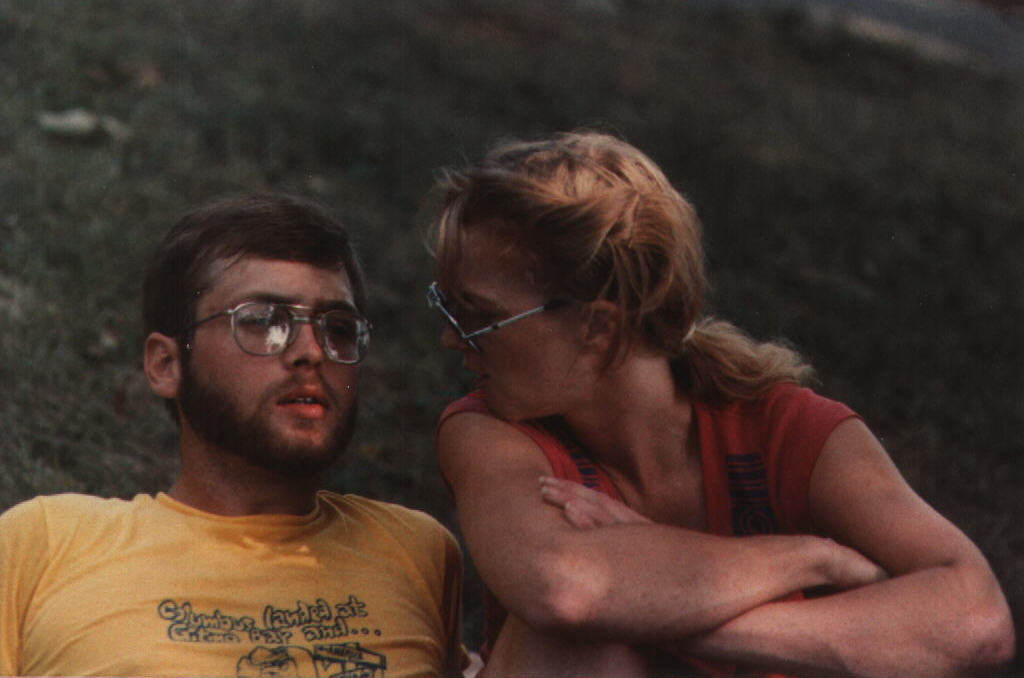
Do you have a philosophy of life that you would like to share with your
descendants?
Ooh, I have thought about that so many times. If I had to make a video
tape to pass along to my children and grandchildren what would I say? I think I
would tell them to be kind, kind to themselves and kind to other people, to err
on the side of kindness. To give everybody a benefit of the doubt and believe
in them until they have shown that they are not trustworthy, but don’t start
out thinking the whole world is against you and everybody you meet is going to
hurt you. I guess to be kind and to believe in people and that would be what I
would pass on.
Is there anything you’d like to add to this interview?
Does I love you count?
Okay, love you too.
…I think the biggest change that I have noticed over the course of my
lifetime that I was the first generation of children that did not have to work
to support the family. I did because my family was poor, but society as a whole
we were allowed to be children and my father wasn’t, my mother wasn’t. No one in
their generation were allowed just to play, just to
have a good time. They all were expected to be responsible and step up to the
plate and make sacrifices for their family.
My mother in law quit school when she was ether in the sixth grade or
the eighth grade to help her family. She feels inferior because of her
educational level but it was required of her and she did it. I don’t know
anyone who has to do that anymore: who has to give up school to go to work and
was expected to do an adult’s job for a child’s pay and that pay goes to their
family, not to them. That’s a huge change in my opinion.
Thank you for being my interviewee.
Thank you for asking me, I am very flattered.
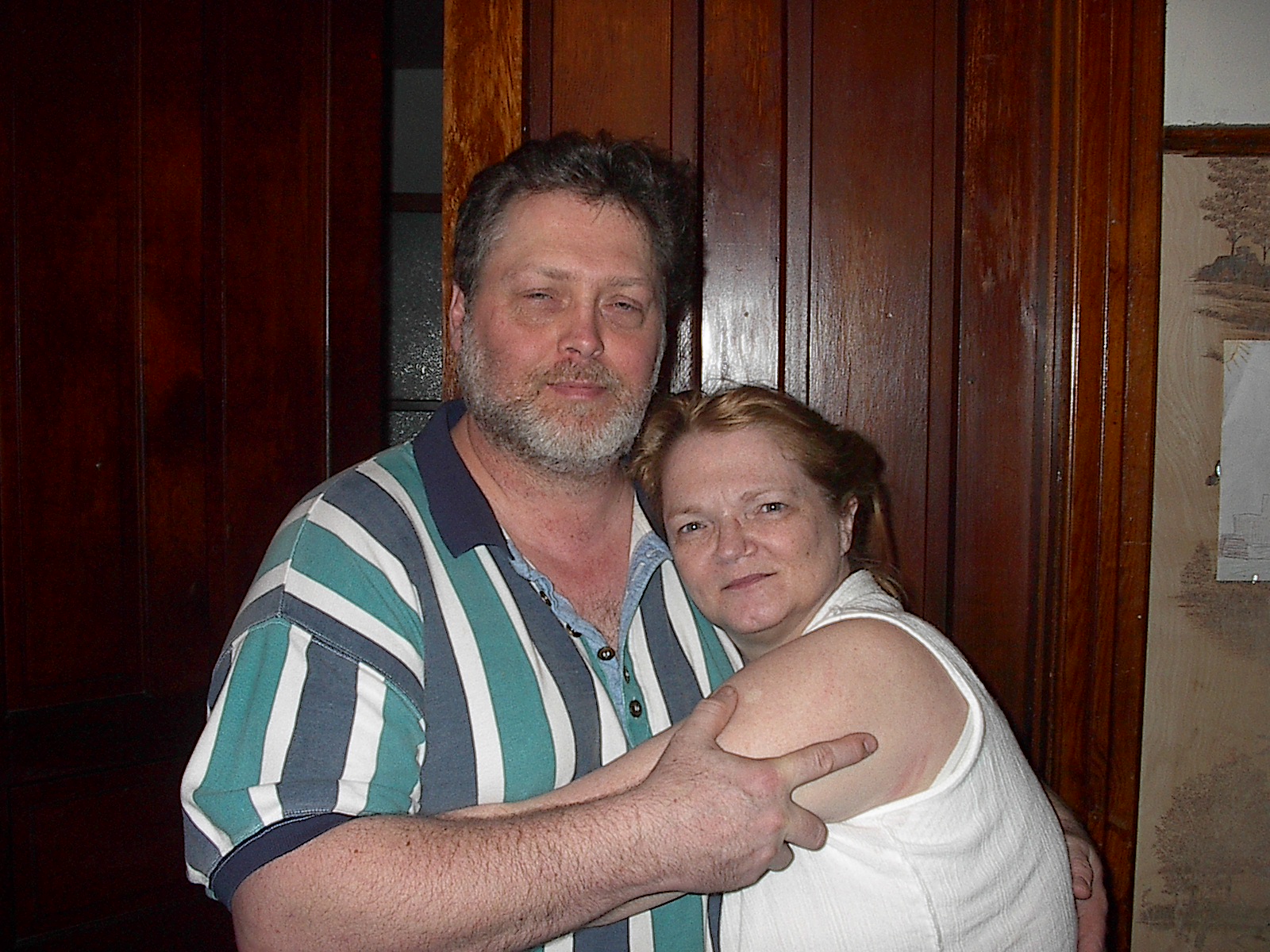
ANALYSIS
This oral history report was done over the phone in two separate interviews; an hour interview on March 15th and a forty minute interview on March 17th 2006. I tried to keep the oral history report focused on women’s issues and Kay was more than helpful in providing glimpses from her life that coincided with the woman’s rights movement. She is wonderful person and interviewing her was a treat because of her insight and honesty. I always thought of her as my mom instead of my mother and law because she is so caring and being able to glimpse this part of her is a privilege. Doing this interview made me see how multifaceted she is in that even while emulating societies’ ideal of a mother and wife, she has always spoke out against society confining women to these roles. This interview gave me a chance to see that while much progress has been made in the area of woman’s rights, we still have a ways to go because the Equal Rights Amendment is still left unsigned. This has been a great experience to learn about history from a vantage point not normally seen in textbooks.
ANNOTATED BIBLIOGRAPHY
The World Wide Web (WWW)
Pauline Weston Thomas; Fashion-Era.com
1950s Fifties Underwear Advertisements of Corselets, Girdles, Bras & Slips
Copyright© 2001-06 20th Fashion History 1950s. http://www.fashion-era.com/1950s/1950s 5_corselettes_girdles.htm (April
30, 2006) History of women’s fashions
during the 20th century.
Dr. K. Butler-Nalin; Monday is Washday: Writing Family
Histories and Autobiographies Copyright © February,
1997. http://www.uni.edu/~elder/wash2.html (April
30, 2006) First hand accounts detailing
the work involved on wash days before the use of modern day washing machines.
Maj. Gen.
Charles Metcalf, USAF (Ret.) Mr. Terry Aitken Women in the Army Air Force Copyright
© December 6, 2004. http://www.wpafb.af.mil/museum/history/wwii/waf.htm
(April 30, 2006)
History of Woman’s
Air Corps and their role in WWII.
.
Maj. Gen.
Charles Metcalf, USAF (Ret.) Mr. Terry Aitken The Official National Museum of the United
States Air Force; History
of the Army Air Force Copyright © December 6, 2004. http://www.wpafb.af.mil/museum/history/wwii/wwii.htm
(April 30, 2006)
Origins of the
Break the glass ceiling
foundation; Break the glass ceiling, equal opportunity for women and minorities
Copyright © 2003-04. http://www.breaktheglassceiling.com/history.htm (April 30, 2006) promoting advancement for women and minorities in their career
fields.
equal rights amendmentAlice Paul Institute and the Nation Council of Women’s Organizations March the History behind the Equal Rights Amendment Copyright © March 16th 2006. http://www.equalrightsamendment.org (April
30, 2006) Provides
information and links pertaining to the equal rights amendment.
Return to Oral History Projects
